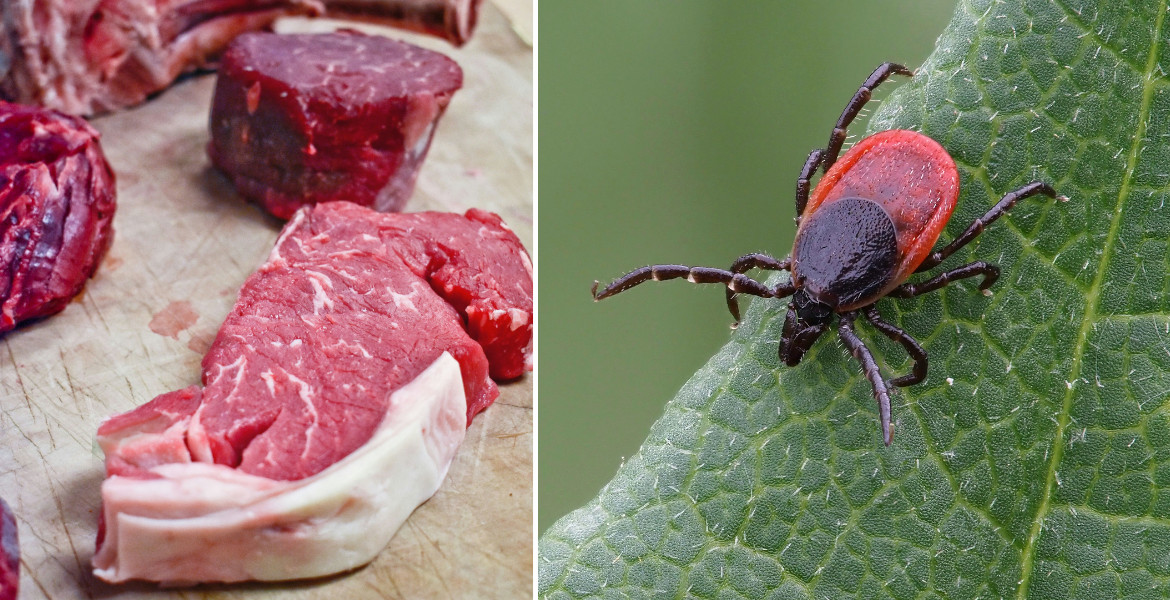Meat allergy is becoming increasingly common in Sweden following tick bites, researchers confirm. For those affected, it means a complete lifestyle change since there is no treatment – only complete abstinence from meat helps.
Karin Ottosson was struck by severe stomach problems after a tick bite. It took time to figure out what problem Karin had been affected by, she felt very ill and nothing seemed to help.
— I was bedridden and tried to eat, but it just continued and continued, she tells Swedish media outlet TV4.
After several hospital visits and numerous investigations, the answer came: Karin had been affected by meat allergy. It is caused by an immune reaction to the substance alpha-gal, which is found in tick saliva and in meat from mammals. The symptoms can include, in addition to various stomach problems such as vomiting and diarrhea, rashes and even asthma reactions.
Researchers have seen a marked increase in meat allergy in connection with ticks spreading to new areas, and also becoming more active for larger parts of the year.
No treatment
Karin had to completely change her diet, but it is not entirely simple to avoid meat – even small amounts or hidden additives can trigger the allergy.
— It can be anything from starting to itch, getting a rash, to becoming as ill as I was from the beginning. It's impossible to predict, says Karin.
There is no treatment for meat allergy, and the only thing that works is to completely avoid meat.
— Unfortunately, there is no treatment other than having to avoid mammalian meat and making sure not to get bitten by ticks, says Marianne van Hage, professor of clinical immunology.




